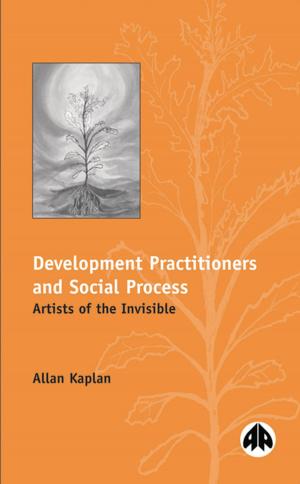| Author: | Rick Wallace Ph.D, Psy.D. | ISBN: | 9781370322428 |
| Publisher: | Rick Wallace Ph.D, Psy.D. | Publication: | May 2, 2017 |
| Imprint: | Smashwords Edition | Language: | English |
| Author: | Rick Wallace Ph.D, Psy.D. |
| ISBN: | 9781370322428 |
| Publisher: | Rick Wallace Ph.D, Psy.D. |
| Publication: | May 2, 2017 |
| Imprint: | Smashwords Edition |
| Language: | English |
This book was commissioned by The Odyssey Project for the purpose of establishing an official position on an enigmatic issue that has been at the core of multitudinous conundrums within the black collective. For more nearly 40 years the special education system in the U.S. has been used as a mechanism to isolate and ostracized African American youth, especially young African American males. This book not only outlines this longstanding problem, but it also highlights the influence that institutional racism and cultural indifference play in the dynamic responsible for disproportionality in the special education system.
There is a wealth of pragmatic and empirical evidence that suggests that the disproportionate representation of African Americans in the special education system is far from coincidental. The numbers that support the position established in this book are beyond bearing statistical significance — demanding the attention of all entities involved. The disproportionality outlined within this document identifies a number of fallible paradigms and processes that must be addressed in totality if African American students are ever to receive a reasonable opportunity within this system.
To bring further elucidation to the official position of The Odyssey Project, it should be understood that we advocate a separate and independent system of education for African American Students — a system that is owned, funded and operated by African Americans. Our youth have unique racial, social and cultural needs that are not addressed within the Eurocentric public education system in the U.S. The deficiencies in these specific areas compound the proclivity of the public education system to assign special education labels to black youth in disproportionate numbers.
The book further identified teacher attitudes and behaviors, the lack of teacher training, the cultural indifference between African American students and the institutions that they attend, the bias of school psychologists in their assessments of African American students and more.
This book was commissioned by The Odyssey Project for the purpose of establishing an official position on an enigmatic issue that has been at the core of multitudinous conundrums within the black collective. For more nearly 40 years the special education system in the U.S. has been used as a mechanism to isolate and ostracized African American youth, especially young African American males. This book not only outlines this longstanding problem, but it also highlights the influence that institutional racism and cultural indifference play in the dynamic responsible for disproportionality in the special education system.
There is a wealth of pragmatic and empirical evidence that suggests that the disproportionate representation of African Americans in the special education system is far from coincidental. The numbers that support the position established in this book are beyond bearing statistical significance — demanding the attention of all entities involved. The disproportionality outlined within this document identifies a number of fallible paradigms and processes that must be addressed in totality if African American students are ever to receive a reasonable opportunity within this system.
To bring further elucidation to the official position of The Odyssey Project, it should be understood that we advocate a separate and independent system of education for African American Students — a system that is owned, funded and operated by African Americans. Our youth have unique racial, social and cultural needs that are not addressed within the Eurocentric public education system in the U.S. The deficiencies in these specific areas compound the proclivity of the public education system to assign special education labels to black youth in disproportionate numbers.
The book further identified teacher attitudes and behaviors, the lack of teacher training, the cultural indifference between African American students and the institutions that they attend, the bias of school psychologists in their assessments of African American students and more.















